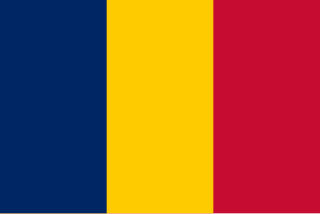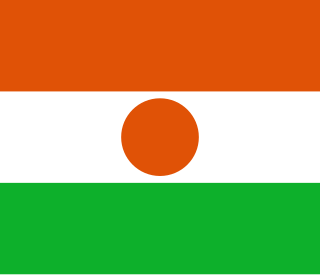Related Research Articles

Political corruption is the use of powers by government officials or their network contacts for illegitimate private gain.
Transparency International e.V. (TI) is a German registered association founded in 1993 by former employees of the World Bank. Based in Berlin, its nonprofit and non-governmental purpose is to take action to combat global corruption with civil societal anti-corruption measures and to prevent criminal activities arising from corruption. Its most notable publications include the Global Corruption Barometer and the Corruption Perceptions Index. Transparency International serves as an umbrella organization. From 1993 to today, its membership has grown from a few individuals to more than 100 national chapters, which engage in fighting perceived corruption in their home countries. TI is a member of G20 Think Tanks, UNESCO Consultative Status, United Nations Global Compact, Sustainable Development Solutions Network and shares the goals of peace, justice, strong institutions and partnerships of the United Nations Sustainable Development Group (UNSDG). TI is a social partner of Global Alliance in Management Education. TI confirmed the dis-accreditation of the national chapter of United States of America in 2017.
Good governance is the process of measuring how public institutions conduct public affairs and manage public resources and guarantee the realization of human rights in a manner essentially free of abuse and corruption and with due regard for the rule of law. Governance is "the process of decision-making and the process by which decisions are implemented ". Governance in this context can apply to corporate, international, national, or local governance as well as the interactions between other sectors of society.

Political corruption in Ghana has been common since independence. Since 2017, Ghana's score on Transparency International's Corruption Perceptions Index has improved slightly from its low point that year, a score of 40 on a scale from 0 to 100. Ghana's score rose to 43 by 2020 and has remained there until the present, 2023. When ranked by score among the 180 countries in the 2023 Index, Ghana ranked 70th, where the country ranked first is perceived to have the most honest public sector. For comparison with worldwide scores, the best score was 90, the average score was 43, and the worst score was 11. For comparison with regional scores, the average score among sub-Saharan African countries was 33. The highest score in sub-Saharan Africa was 71 and the lowest score was 11.
Global Integrity was an independent, nonprofit organization tracking governance and corruption trends around the world using local teams of researchers and journalists to monitor openness and accountability. Global Integrity's reporting has been cited by over 50 newspapers worldwide, and is used by the World Bank, USAID, Millennium Challenge Corporation and other donor agencies to evaluate aid priorities. Global Integrity's methodology for metrics of governance and corruption differed from the Corruption Perceptions Index or Bribe Payers Index) because GI drew from local experts and transparent source data, rather than surveys of perceptions. Unlike traditional charities, Global Integrity was a hybrid organization that seeks to generate earned revenue to support its public-interest mission.

This article discusses the responsibilities of the various agencies involved in combating corruption in New Zealand. New Zealand is regarded as having one of the lowest levels of corruption in the world.

The Open Government Partnership (OGP) is a multilateral initiative aimed at securing commitments from national and sub-national governments to promote open government, combat corruption, and improve governance. The OGP is managed by a steering committee that includes representatives from both governments and civil society organizations.
Multistakeholder governance is a practice of governance that employs bringing multiple stakeholders together to participate in dialogue, decision making, and implementation of responses to jointly perceived problems. The principle behind such a structure is that if enough input is provided by multiple types of actors involved in a question, the eventual consensual decision gains more legitimacy, and can be more effectively implemented than a traditional state-based response. While the evolution of multistakeholder governance is occurring principally at the international level, public-private partnerships (PPPs) are domestic analogues.

Ghana Open Data Initiative (GODI) was started in January 2012 by the National Information Technology Agency (NITA) in partnership with the Web Foundation (WF), to make Government of Ghana data available to the public for re-use. The establishment of GODI is meant to promote efficiency, transparency and accountability in governance as well as to facilitate economic growth by means of the creation of Mobile and Web applications for the Ghanaian and world markets. The project was scheduled for completion in 2014 and aimed to create a sustainable Open Data ecosystem for Ghana. GODI was launched with a 100 data sets categorized as political, legal, organizational, technical, social or economic. The vision of GODI is to develop an open data community involving the Government of Ghana, civil society organizations, industry, developer communities, academia, media practitioners, and the citizenry, to interact with one another with the aim of developing an open data portal to bring about transparency, accountability and efficiency in government.

Corruption in Georgia had been an issue in the post-Soviet decades. Before the 2003 Rose Revolution, according to Foreign Policy, Georgia was among the most corrupt nations in Eurasia. The level of corruption abated dramatically, however, after the revolution. In 2010, Transparency International (TI) said that Georgia was "the best corruption-buster in the world." While low-level corruption had earlier been largely eliminated, Transparency International Georgia since 2020 has also documented dozens of cases of high-level corruption that remain to be prosecuted.

On Transparency International's 2023 Corruption Perceptions Index, Senegal scored 43 on a scale from 0 to 100. When ranked by score, Senegal ranked 70th among the 180 countries in the Index, where the country ranked first is perceived to have the most honest public sector. For comparison with worldwide scores, Senegal's score was also the average score in 2023; the best score was 90 and the worst score was 11. For comparison with regional scores, the average score among sub-Saharan African countries was 33. The highest score in sub-Saharan Africa was 71 and the lowest score was 11.

The Anti-Corruption Coalition Uganda, abbreviated as ACCU, is a Ugandan civil society advocacy organization whose primary aim is to fight against corruption in Uganda. It has a network of nine (9) Regional Anti-Corruption Coalitions (RACCs) in the country.

The Institute for Development of Freedom of Information (IDFI) - is a Georgian non-governmental organization which tends to support the development of an informed and empowered society for democratic governance. IDFI promotes human rights and good governance by raising civic awareness through sound informational reports, research and recommendations; Advocates for initiating & implementing reforms of policies, laws and practices to enhance democratic governance.
The International Anti-Corruption Court (IACC) is a proposed international court that would strengthen the enforcement of criminal laws against corrupt leaders. The effort to establish the court was first proposed by Judge Mark L. Wolf, a Senior Judge of the United States District Court for the District of Massachusetts, at the 2012 St. Petersburg International Legal Forum, the 2014 World Forum on Global Governance, and in articles for the Brookings Institution and The Washington Post in 2014.

Corruption in Chad is characterized by nepotism and cronyism. Chad received a score of 20 in the 2023 Transparency International Corruption Perceptions Index on a scale from 0 to 100. When ranked by score, Chad ranked 162nd among the 180 countries in the Index, where the country ranked first is perceived to have the most honest public sector. For comparison with worldwide scores, the best score was 90, the average score was 43, and the worst score was 11. For comparison with regional scores, the average score among sub-Saharan African countries was 33. The highest score in sub-Saharan Africa was 71 and the lowest score was 11.
Anti-corruption comprises activities that oppose or inhibit corruption. Just as corruption takes many forms, anti-corruption efforts vary in scope and in strategy. A general distinction between preventive and reactive measures is sometimes drawn. In such framework, investigative authorities and their attempts to unveil corrupt practices would be considered reactive, while education on the negative impact of corruption, or firm-internal compliance programs are classified as the former.

The Basel Institute on Governance is an independent, international non-profit organisation dedicated to preventing and combating corruption and other financial crimes and to strengthening governance around the world. The organisation was established in Basel, Switzerland in 2003 by Professor Mark Pieth.

Corruption in Lebanon magnified after the end of the civil war in 1990. It has been described as a case of "post-conflict corruption." Once a taboo subject, now it is at the forefront of the public debate in Lebanon. Anti-corruption sentiment has been one of the driving forces behind many of the large scale Lebanese protests in recent history.
Maritime anti-corruption initiatives have emerged in the last decades as a response to the growing threat of transnational corruption in the maritime domain, specifically in the shipping industry which is responsible for around 90% of world trade. In the past, paying bribes at ports to pass through customs was perceived as normal behavior, but such activities resulting in higher operational costs lead to increasingly stricter national and international anti-corruption regulations being put in place.

Corruption in Niger has a long history in pre-colonial and colonial era, as well as in the current state and has been a pervasive issue in the country's political, economic, and social landscape. The colonial administration mismanaged public funds, leading to inefficiencies and waste. Corrupt officials often went unpunished, perpetuating a culture of corruption.
References
- ↑ "Ghana anti-corruption coalition educates students on electoral corruption and fraud". Ghanaweb.
- ↑ "Who We Are – GACC" . Retrieved 2024-11-30.
- ↑ "Ghana Anti-Corruption Coalition (GACC) | UNCAC Coalition" . Retrieved 2024-11-30.